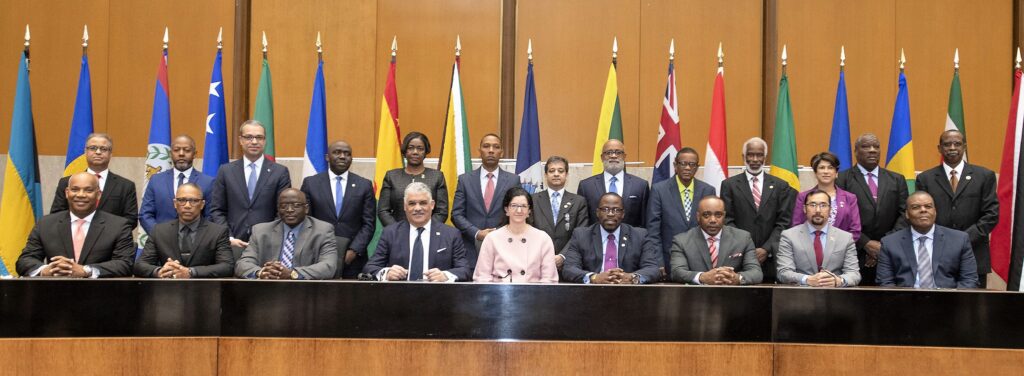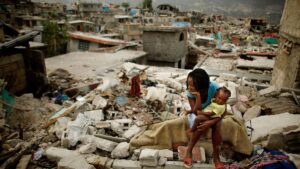
The Caribbean Basin Security Initiative, shown here, is a consortium of Caribbean nations with economic help from the United States for making all involved countries safer through improving security measures and other key issues.
Caribbean Basin Security Initiative (CBSI)
Founded in 2010, the CBSI uses American funding put towards initiatives such as preventing crime, border security, support for law enforcement, justice system reform, and port security. In addition to the above-described funding, training and certain types of equipment are also provided for assistance. For 2022 alone, the Biden administration committed $66 million in funding for the CBSI.
- Prominent Members of Caribbean Basin Security Initiative:
-
-
- Jamaica, the Dominican Republic, Saint Lucia, Barbados, Trinidad and Tobago, and The Bahamas.
- Observers of CBSI: Haiti, Belize, and smaller Caribbean islands such as the Dutch islands.
-
Humanitarian Efforts in the Caribbean
Hurricane relief, along with earthquake relief above, is referred to as short-term relief. These are both considered main priorities for the United States because quick influxes of capital can rapidly benefit the recovering communities in these countries. Reflecting historical political decisions like the Good Neighbor Policy, the United States can continue to strengthen bonds with Caribbean nations through this type of recovery aid.
Haitian Earthquake
Throughout the 2010s, the U.S. has been heavily involved in Haiti for economic development and recovery. The devastating 2010 Haitian earthquake presented an opportunity for the United States to give immediate short-term relief to a Caribbean nation in need. United States aid to Haiti rose quickly to help stabilize the country, but has since declined. However in terms of more long-term aid, the United States is helping to address health issues in Haiti, especially HIV and AIDS. In 2022, the Biden administration requested $187.9 million to help with the health crisis, along with other forms of economic development such as natural resources and agricultural aid.
Outside Powers
Within the Caribbean, the threat of outside powers gaining influence has been a topic of discussion well before the 21st Century. However, it is China now as the emerging threat fully invested in Latin America and especially the Caribbean. Since 2001, both Cuba and Dominica have received more economic aid from China than from the United States. Especially given that the Caribbean is the closest part of Latin America to the mainland U.S., keeping tabs on foreign powers is going to be crucial for the United States to maintain geopolitical dominance in the region.
The aftermath of the 2010 Haitian Earthquake, below, is an example of a strong commitment to short term relief by the United States in the Caribbean region.

Recent Comments